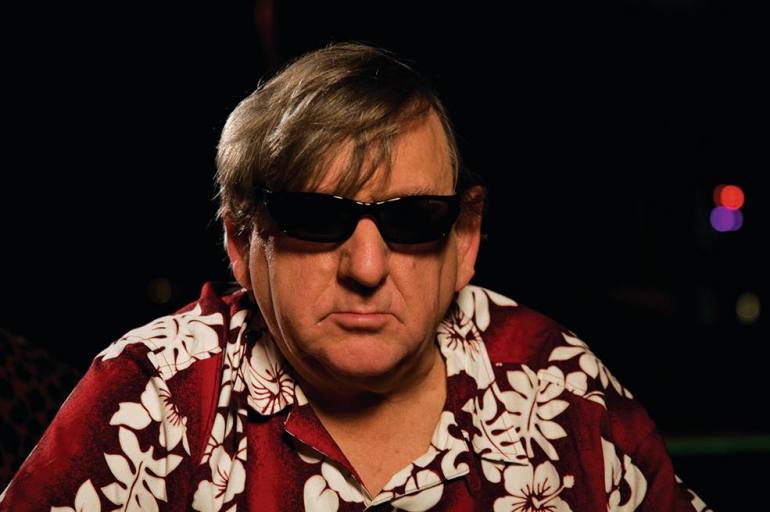John D. Lamond.
John D. Lamond, one of the pioneers of Australia’s Ozploitation film industry, died today in a nursing home on the Gold Coast, aged 71.
The producer-writer-director had been battling Parkinson’s disease for more than 20 years.
Mark Hartley’s documentary Not Quite Hollywood celebrated Lamond’s idiosyncratic contributions to the Ozploitation genre and featured his tongue-in-cheek quote, “I’m told I treat women like a sex object. I suppose it’s true because I ask for sex – and they object.”
Hartley tells IF: “He was a lovely guy, funny, cheeky, warm and irreverent, and so supportive of me. John, Tony Ginnane, Brian Trenchard-Smith and Richard Franklin kept egging me on to make Not Quite Hollywood.
“He was always totally unapologetic about his films and he had no reason to be apologetic. It was only when he tried to make more commercial films that his finger wasn’t on the pulse.”
Working Dog executive producer Michael Hirsh, a frequent collaborator in the 1980s, said: “He had a direct line into what audiences of the time wanted and he helped me a helluva lot.”
His first screen credit was The Devil in Evening Dress, a 1974 short documentary about the ghost which haunted the Princess Theatre, which was directed by Dr George Miller.
Lamond and Alan Finney spearheaded marketing for Roadshow in the 1970s. Hexagon, the production company founded by Finney, Tim Burstall and Roadshow, gave him the money for Australia After Dark, a 1975 documentary which looked at the “dark side” of Australian culture and was wildly successful.
In 1978 he directed and co-wrote with Finney The ABC of Love and Sex: Australia Style, a tongue-in-cheek sex education documentary, and he directed Felicity, the saga of a sheltered teen who is deflowered in Hong Kong. The All Movie Guide lauded its “light-hearted, romantic approach to erotica that makes it fun to watch even when it is marking time between sex scenes.”
Less generously, the guide described his Pacific Banana, which starred Graeme Blundell as a nerdy pilot who sneezes whenever a woman turns him on, causing impotence, as a “smarmy, leering sex-comedy.”
Finney says: “He was a good friend and played a significant role in my early days at Roadshow. He was part of our group that wanted to get Aussie films made and on screens. One of his best jobs was when we sent him driving through country areas setting up pre-awareness of films well before their release.”
Producer Antony I Ginnane lauded Lamond for “burning a turbo-charged commercial trail” during the immediate post-R certificate market in the second half of the 1970s working at Roadshow with Finney and Burstall at Hexagon, observing: “He had a great interest in and long lasting sense of the domestic and commercial marketplace and he was one of the best trailer cutters I have ever encountered.”
His directing credits include the 1982 romantic comedy Breakfast in Paris, which starred Barbara Parkins and Rod Mullinar, and the 1983 comedy A Slice of Life, headlined by Robin Nedwell and John Ewart, both written by Alan Hopgood.
As a producer his last Australian feature was Sky Pirates, a 1986 sci-fi adventure directed by Colin Eggleston, which he co-wrote, starring John Hargreaves, Meredith Phillips and Max Phipps.
Lamond holding the concept art of ‘Felicity’ in 2009.
Lamond was a mentor to Hirsh, initially hiring him as a gofer on Pacific Banana and then in more elevated roles as production accountant and as a co-producer on Sky Pirates.
In 2010 he returned to Australia after more than 20 years living in Singapore, London, Thailand and Hong Kong.
In 2012 he told this writer he planned to make his comeback with Jetlagged, an erotic thriller about a Japanese woman who seduces an American guy on a plane and takes him to her apartment in Surfers Paradise where they have a fight which results in his death, and he was hatching several other projects.
None eventuated. Hartley said that whenever he talked to Lamond, the filmmaker was determined to make another film.
He wasn’t impressed by the Australian films he’d seen since his return, telling this writer: “I’m disgusted with the film industry. Australian filmmakers seem inept at portraying sentiment, romance and sex.”
Ginnane will miss his occasional phone calls: “Lamond here…” peppered with unprintable observations on the latest, in his words “Australian art house abomination.”
Hartley concludes: “John leaves a filmography that includes a dabble in practically every genre – from mondo movies to syrupy romance to Emmanuelle, Halloween and Indiana Jones clones.”
Survivors include his wife Diane, his first wife Jean and children John Lamond Jr, Jennie, Tess and Oliver.




